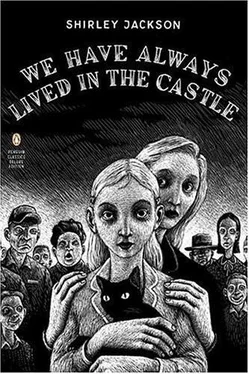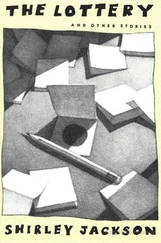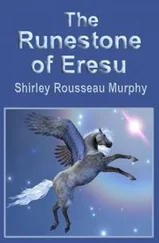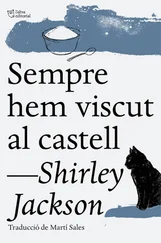Shirley Jackson - We Have Always Lived in the Castle
Здесь есть возможность читать онлайн «Shirley Jackson - We Have Always Lived in the Castle» весь текст электронной книги совершенно бесплатно (целиком полную версию без сокращений). В некоторых случаях можно слушать аудио, скачать через торрент в формате fb2 и присутствует краткое содержание. Город: New York, Год выпуска: 2006, ISBN: 2006, Издательство: Penguin Books, Жанр: Триллер, gothic_novel, на английском языке. Описание произведения, (предисловие) а так же отзывы посетителей доступны на портале библиотеки ЛибКат.
- Название:We Have Always Lived in the Castle
- Автор:
- Издательство:Penguin Books
- Жанр:
- Год:2006
- Город:New York
- ISBN:978-1-101-53065-8
- Рейтинг книги:3 / 5. Голосов: 1
-
Избранное:Добавить в избранное
- Отзывы:
-
Ваша оценка:
- 60
- 1
- 2
- 3
- 4
- 5
We Have Always Lived in the Castle: краткое содержание, описание и аннотация
Предлагаем к чтению аннотацию, описание, краткое содержание или предисловие (зависит от того, что написал сам автор книги «We Have Always Lived in the Castle»). Если вы не нашли необходимую информацию о книге — напишите в комментариях, мы постараемся отыскать её.
is a deliciously unsettling novel about a perverse, isolated, and possibly murderous family and the struggle that ensues when a cousin arrives at their estate.
We Have Always Lived in the Castle — читать онлайн бесплатно полную книгу (весь текст) целиком
Ниже представлен текст книги, разбитый по страницам. Система сохранения места последней прочитанной страницы, позволяет с удобством читать онлайн бесплатно книгу «We Have Always Lived in the Castle», без необходимости каждый раз заново искать на чём Вы остановились. Поставьте закладку, и сможете в любой момент перейти на страницу, на которой закончили чтение.
Интервал:
Закладка:
“To kill rats,” Constance said to the teapot, and then turned and smiled at me.
“To kill rats,” Uncle Julian said. “The only other popular use for arsenic is in taxidermy, and my niece could hardly pretend a working knowledge of that subject.”
“She cooked the dinner, she set the table.”
“I confess I am surprised at that woman,” Helen Clarke said. “She seems such a quiet little body.”
“It was Constance who saw them dying around her like flies—I do beg your pardon—and never called a doctor until it was too late. She washed the sugar bowl.”
“There was a spider in it,” Constance said.
“She told the police those people deserved to die.”
“She was excited, madam. Perhaps the remark was misconstrued. My niece is not hard-hearted; besides, she thought at the time that I was among them and although I deserve to die—we all do, do we not?—I hardly think that my niece is the one to point it out.”
“She told the police that it was all her fault.”
“Now there,” Uncle Julian said, “I think she made a mistake. It was certainly true that she thought at first that her cooking had caused all this, but in taking full blame I think that she was over-eager. I would have advised her against any such attitude had I been consulted; it smacks of self-pity.”
“But the great, the unanswered question, is why ? Why did she do it? I mean, unless we agree that Constance was a homicidal maniac—”
“You have met her, madam.”
“I have what? Oh, my goodness yes. I completely forgot. I cannot seem to remember that that pretty young girl is actually—well. Your mass murderer must have a reason, Mr. Blackwood, even if it is only some perverted, twisted—oh, dear. She is such a charming girl, your niece; I cannot remember when I have taken to anyone as I have to her. But if she is a homicidal maniac—”
“I’m leaving.” Helen Clarke stood up and slammed her pocketbook emphatically under her arm. “Lucille,” she said, “I am leaving. We have overstayed all limits of decency; it’s after five o’clock.”
Mrs. Wright scurried out of the dining room, distraught. “I’m so sorry,” she said. “We were chatting and I lost track of time. Oh, dear.” She ran to her chair to gather up her pocketbook.
“You haven’t even touched your tea,” I said, wanting to see her blush.
“Thank you,” she said; she looked down at her teacup and blushed. “It was delicious.”
Uncle Julian stopped his wheel chair in the center of the room and folded his hands happily before him. He looked at Constance and then raised his eyes to gaze on a corner of the ceiling, sober and demure.
“Julian, goodbye,” Helen Clarke said shortly. “Constance, I’m sorry we stayed so long; it was inexcusable. Lucille?”
Mrs. Wright looked like a child who knows it is going to be punished, but she had not forgotten her manners. “Thank you,” she said to Constance, putting her hand out and then taking it back again quickly. “I had a very nice time. Goodbye,” she said to Uncle Julian. They went into the hall and I followed, to lock the door after they had gone. Helen Clarke started the car before poor Mrs. Wright had quite finished getting herself inside, and the last I heard of Mrs. Wright was a little shriek as the car started down the driveway. I was laughing when I came back into the drawing room, and I went over and kissed Constance. “A very nice tea party,” I said.
“That impossible woman.” Constance put her head back against the couch and laughed. “Ill bred, pretentious, stupid. Why she keeps coming I’ll never know.”
“She wants to reform you.” I took up Mrs. Wright’s teacup and her rum cake and brought them over to the tea tray. “Poor little Mrs. Wright,” I said.
“You were teasing her, Merricat.”
“A little bit, maybe. I can’t help it when people are frightened; I always want to frighten them more.”
“Constance?” Uncle Julian turned his wheel chair to face her. “How was I?”
“Superb, Uncle Julian.” Constance stood up and went over to him and touched his old head lightly. “You didn’t need your notes at all.”
“It really happened?” he asked her.
“It certainly did. I’ll take you in to your room and you can look at your newspaper clippings.”
“I think not right now. It has been a superlative afternoon, but I think I am a little tired. I will rest till dinner.”
Constance pushed the wheel chair down the hall and I followed with the tea tray. I was allowed to carry dirty dishes but not to wash them, so I set the tray on the kitchen table and watched while Constance stacked the dishes by the sink to wash later, swept up the broken milk pitcher on the floor, and took out the potatoes to start for dinner. Finally I had to ask her; the thought had been chilling me all afternoon. “Are you going to do what she said?” I asked her. “What Helen Clarke said?”
She did not pretend not to understand. She stood there looking down at her hands working, and smiled a little. “I don’t know,” she said.
3
A change was coming, and nobody knew it but me. Constance suspected, perhaps; I noticed that she stood occasionally in her garden and looked not down at the plants she was tending, and not back at our house, but outward, toward the trees which hid the fence, and sometimes she looked long and curiously down the length of the driveway, as though wondering how it would feel to walk along it to the gates. I watched her. On Saturday morning, after Helen Clarke had come to tea, Constance looked at the driveway three times. Uncle Julian was not well on Saturday morning, after tiring himself at tea, and stayed in his bed in his warm room next to the kitchen, looking out of the window beside his pillow, calling now and then to make Constance notice him. Even Jonas was fretful—he was running up a storm, our mother used to say—and could not sleep quietly; all during those days when the change was coming Jonas stayed restless. From a deep sleep he would start suddenly, lifting his head as though listening, and then, on his feet and moving in one quick ripple, he ran up the stairs and across the beds and around through the doors in and out and then down the stairs and across the hall and over the chair in the dining room and around the table and through the kitchen and out into the garden where he would slow, sauntering, and then pause to lick a paw and flick an ear and take a look at the day. At night we could hear him running, feel him cross our feet as we lay in bed, running up a storm.
All the omens spoke of change. I woke up on Saturday morning and thought I heard them calling me; they want me to get up, I thought before I came fully awake and remembered that they were dead; Constance never called me to wake up. When I dressed and came downstairs that morning she was waiting to make my breakfast, and I told her, “I thought I heard them calling me this morning.”
“Hurry with your breakfast,” she said. “It’s another lovely day.”
After breakfast on the good mornings when I did not have to go into the village I had my work to do. Always on Wednesday mornings I went around the fence. It was necessary for me to check constantly to be sure that the wires were not broken and the gates were securely locked. I could make the repairs myself, winding the wire back together where it had torn, tightening loose strands, and it was a pleasure to know, every Wednesday morning, that we were safe for another week.
On Sunday mornings I examined my safeguards, the box of silver dollars I had buried by the creek, and the doll buried in the long field, and the book nailed to the tree in the pine woods; so long as they were where I had put them nothing could get in to harm us. I had always buried things, even when I was small; I remember that once I quartered the long field and buried something in each quarter to make the grass grow higher as I grew taller, so I would always be able to hide there. I once buried six blue marbles in the creek bed to make the river beyond run dry. “Here is treasure for you to bury,” Constance used to say to me when I was small, giving me a penny, or a bright ribbon; I had buried all my baby teeth as they came out one by one and perhaps someday they would grow as dragons. All our land was enriched with my treasures buried in it, thickly inhabited just below the surface with my marbles and my teeth and my colored stones, all perhaps turned to jewels by now, held together under the ground in a powerful taut web which never loosened, but held fast to guard us.
Читать дальшеИнтервал:
Закладка:
Похожие книги на «We Have Always Lived in the Castle»
Представляем Вашему вниманию похожие книги на «We Have Always Lived in the Castle» списком для выбора. Мы отобрали схожую по названию и смыслу литературу в надежде предоставить читателям больше вариантов отыскать новые, интересные, ещё непрочитанные произведения.
Обсуждение, отзывы о книге «We Have Always Lived in the Castle» и просто собственные мнения читателей. Оставьте ваши комментарии, напишите, что Вы думаете о произведении, его смысле или главных героях. Укажите что конкретно понравилось, а что нет, и почему Вы так считаете.












